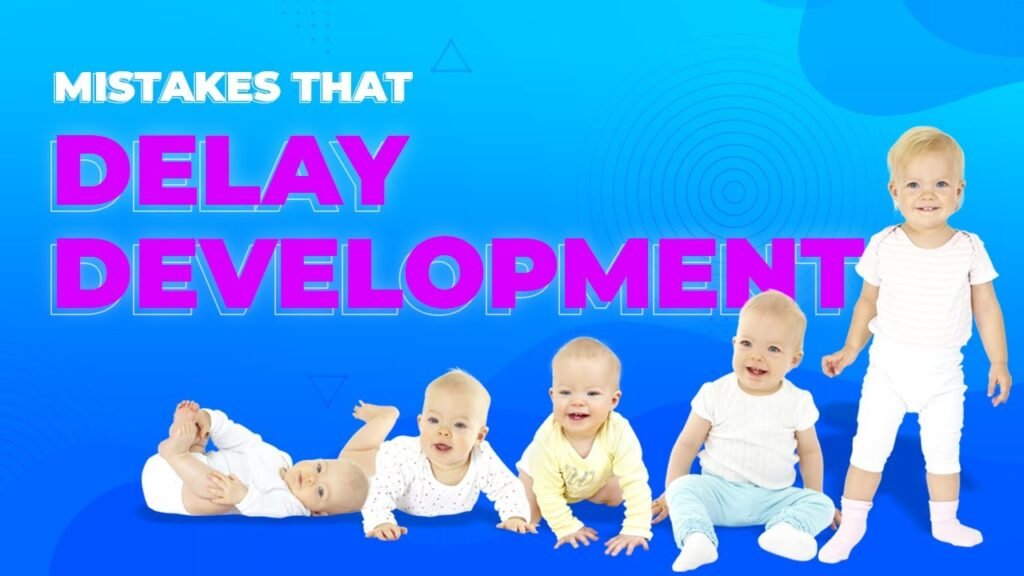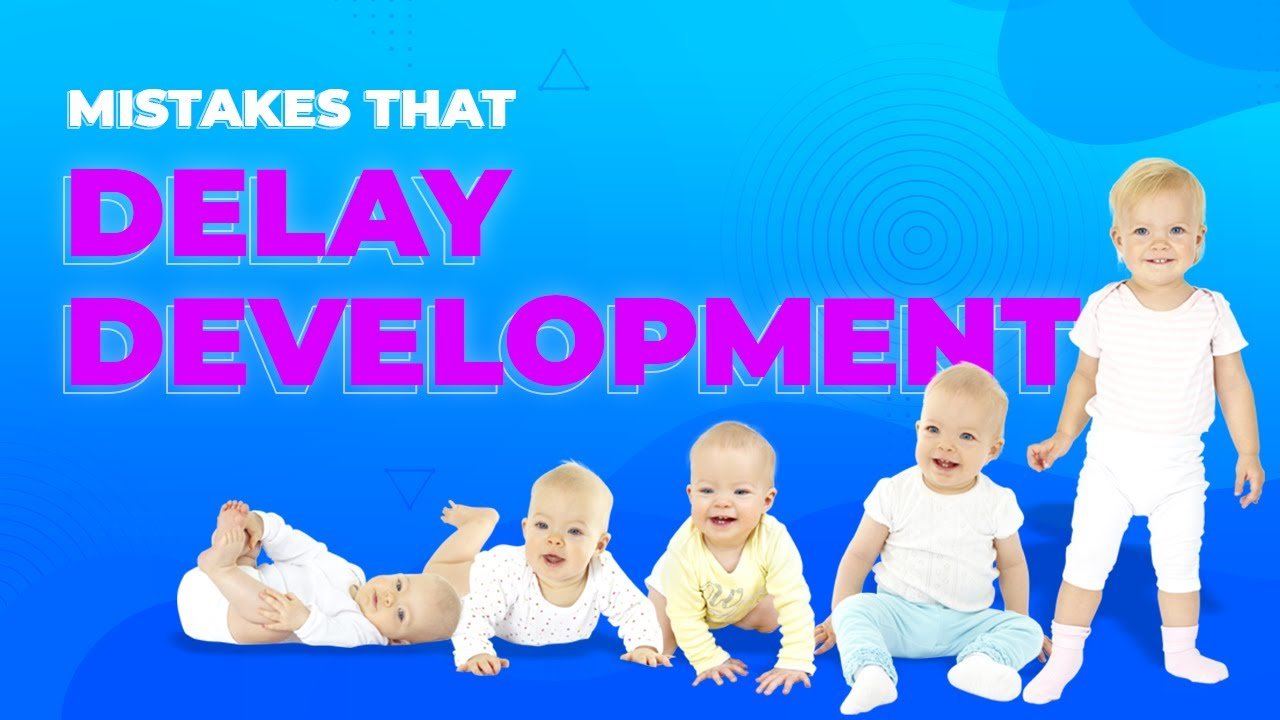As a parent, ensuring your baby’s development is top priority. However, there are common mistakes that parents often make that can hinder this development. From improper baby-carrying positions to the use of unnecessary items like jumpers and baby walkers, it’s important to be aware of these mistakes and how to avoid them for optimal development.
By following these 7 tips, such as proper baby-carrying positions, avoiding mittens, and turning off screens, you can help set your baby up for success in achieving their developmental milestones. It’s crucial to be informed about age-appropriate norms and milestones to ensure that you are promoting healthy growth and development for your little one.
Lack of Tummy Time
As a new parent, you may not realize the importance of providing enough tummy time for your baby. Tummy time helps strengthen crucial muscles in your baby’s body, including the neck, shoulders, and core muscles. These muscles are essential for your baby’s overall development and can help them reach important milestones, such as crawling and sitting up. By not providing enough tummy time, you may inadvertently hinder your baby’s physical development.
Tummy time also allows babies to practice lifting their heads, which is important for developing neck strength. It helps prevent flat spots on the back of the head and promotes healthy motor skills. Make sure to incorporate tummy time into your baby’s daily routine to support their development and encourage muscle growth.
Overuse of Baby Gear
While baby gear such as jumpers, exersaucers, and walkers may seem like helpful tools to entertain your little one, overuse of these items can limit natural movement and hinder development. These pieces of equipment may put your baby in positions that their muscles are not strong enough to support, leading to potential injuries and delays in achieving developmental milestones.
To promote healthy development, it’s essential to avoid using these items excessively. Encourage your baby to engage in activities that promote natural movement, such as tummy time, floor play, and interaction with their surroundings. Limit the time your baby spends in baby gear and prioritize activities that support their physical growth and motor skills development.
Incorrect Baby-Carrying Position
Carrying your baby in the wrong position can have negative effects on their spine development. It’s crucial to use carriers that support your baby’s natural hip position, with their knees higher than their hips and their legs forming an M shape. This position promotes healthy hip development and reduces the risk of conditions like developmental dysplasia of the hip (DDH).
When carrying your baby, ensure that their bottom and thighs are well-supported to prevent strain on their hips. By using carriers that promote proper alignment and positioning, you can support your baby’s spine development and overall physical well-being. Pay attention to how you carry your baby to ensure their safety and optimal development.

Using Baby Mittens
While it may seem practical to use mittens to protect your baby’s skin or keep their hands warm, using them too often can restrict hand and finger movement essential for development. Babies explore the world through touch and hand movements, and wearing mittens can hinder their ability to interact with objects and develop fine motor skills.
Avoid using mittens excessively and allow your baby to use their hands freely to explore and play. By giving them the opportunity to move and manipulate objects with their fingers, you support their cognitive and motor development. Let your baby’s hands be uncovered to promote sensory experiences and encourage their natural curiosity and exploration.
Skipping Swaddling
Swaddling can provide comfort and security for your baby, helping them feel safe and sleep better. Proper swaddling technique can aid in physical and emotional development by mimicking the womb environment and promoting relaxation. Swaddling can also prevent your baby from startling themselves awake and improve their sleep patterns.
When swaddling your baby, ensure that their legs can bend up and out to the side to allow for natural movement. Avoid wrapping them too tightly or restricting their leg position, as this can affect hip development. Swaddling can be a calming and soothing practice for your baby, contributing to their overall well-being and promoting healthy sleep habits.
Relying on Screens for Entertainment
Excessive screen time can have detrimental effects on your baby’s language development and social skills. Watching TV or using screens can distract parents, reduce communication with the baby, and limit interactive playtime. It’s essential to prioritize interaction, communication, and play without screens to foster your baby’s cognitive and social development.
Encourage face-to-face interactions, reading, singing, and playing with toys to engage your baby and promote language skills. Limit screen time for children under two years old, as it may interfere with their ability to engage with the world around them. Create a screen-free environment that encourages exploration, creativity, and healthy social interactions to support your baby’s overall development.
Not Allowing Barefoot Time
Barefoot time is beneficial for babies as it helps strengthen foot muscles, improve balance, and promote sensory experiences. By allowing your baby to go barefoot indoors, you create opportunities for them to engage with different textures, surfaces, and sensations. Shoes and socks can restrict foot movement and dampen sensory feedback, affecting your baby’s balance and coordination.
Encourage barefoot time at home to support your baby’s natural development and enhance their motor skills. Let your baby explore their environment without shoes or socks to promote muscle strength and sensory awareness. By allowing for barefoot time, you create a sensory-rich environment that stimulates your baby’s feet and encourages healthy development.
Ignoring Age-Appropriate Milestones
Understanding typical developmental milestones is essential for tracking your baby’s progress and identifying potential delays. Being aware of what to expect at different stages of development can help you monitor your baby’s growth and address any concerns early on. By recognizing age-appropriate norms and milestones, you can support your baby’s optimal development and intervene if necessary.
Monitor your baby’s growth and achievements to ensure they are meeting milestones within the expected timeframe. Seek guidance from healthcare professionals if you have any concerns about your baby’s development or progress. By staying informed about age-appropriate milestones, you can empower yourself to support your baby’s overall well-being and address any developmental challenges proactively.
Lack of Outdoor Playtime
Outdoor playtime offers numerous benefits for your baby’s development, including physical activity, exploration, and sensory experiences. Exposure to fresh air, natural surroundings, and different stimuli can stimulate your baby’s senses and promote cognitive and motor skills development. Outdoor play provides opportunities for your baby to engage with the environment, enhance their creativity, and support overall growth.
Make time for outdoor play activities that allow your baby to explore nature, engage in physical movement, and interact with their surroundings. Outdoor play can boost your baby’s mood, improve their attention span, and contribute to their overall well-being. Create safe and stimulating outdoor spaces for your baby to enjoy and encourage outdoor play as part of their daily routine.
Underestimating the Importance of Sleep
Adequate sleep is crucial for your baby’s growth, development, and overall well-being. Establishing healthy sleep habits early on can positively impact your baby’s physical, cognitive, and emotional development. Sleep plays a vital role in memory consolidation, learning, and mood regulation, supporting your baby’s ability to thrive and meet developmental milestones.
Ensure that your baby gets enough quality sleep each day by establishing a bedtime routine, creating a sleep-conducive environment, and prioritizing consistent sleep schedules. Pay attention to your baby’s sleep cues and help them develop healthy sleep patterns that promote restful and restorative sleep. By recognizing the importance of sleep and prioritizing your baby’s sleep needs, you can support their optimal development and well-being.
By avoiding these common mistakes and implementing positive practices in your baby’s daily routine, you can help support their healthy development and growth. Prioritize activities that promote physical, cognitive, and emotional well-being to ensure your baby reaches important milestones and thrives in their early years. Stay informed, be proactive, and create a nurturing environment that fosters your baby’s overall development from the start.

